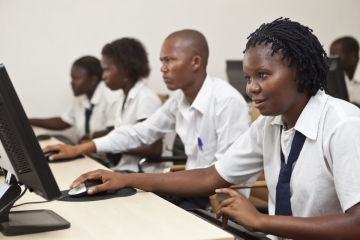
A study carried out by the Eduardo Mondlane University (UEM) revealed that a good part of Mozambican students do not have the skills to research using Information and Communication Technologies (ICT).
According to the investigation of that higher education institution in the country, students with access to digital equipment do not have the skills to operate and handle the tools, since they do not have the capacity to carry out research using new technologies.
With the name of "Attempts to improve teaching resources – research through remote learning in higher education“, the research was authored by Professor at the Faculty of Education at UEM, Adriano Uaciquete, who also showed that even with these limitations, students in the country who received training can manage to do research.
"In a country like ours (Mozambique), without great resources in technology, it is urgent to design strategies aimed at reinforcing research through ICT“, said the scholar.
Therefore, Uaciquete defends the creation of new work policies in higher education institutions in Mozambique, such as the introduction of research-based teaching, investment in the acquisition of digital equipment and respective training, in order to strengthen remote teaching.
"This research has a great advantage because while it was taking place, the research subjects were in the process of being trained.“, informed Adriano Uaciquete.
BUT: Mozambique. Ministry of Science and Technology proposes review of Higher Education in the country
It should be noted that this investigation by UEM addressed how technology can strengthen the relationship between teaching and research, seeking to develop competences in research in a real classroom context and also covered students from different levels of education.
For Adriano Uaciquete, while developed countries make remarkable progress in ICTs, through the adoption of an adequate legislative framework integrated to their use in universities, higher education practices in underdeveloped countries will be more arbitrary and disjointed.
Based on these actors, and to respond to the demands caused by the Covid-19 pandemic, institutions depended on non-objective-oriented “online” teaching, concludes the researcher.







